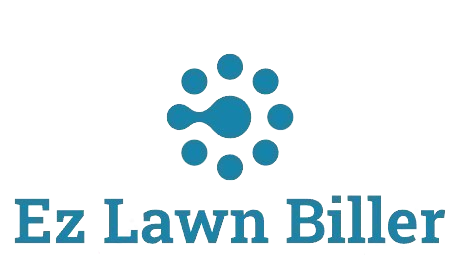Staying compliant in your lawn business is crucial to your success. This guide will walk you through essential steps to maintain compliance and protect your business.
Step-by-Step: How to Stay Compliant in Your Lawn Business
As a lawn care business owner, ensuring compliance with various regulations can be daunting. From environmental laws to safety regulations and financial management, staying compliant is not just a legal obligation; it’s vital for your business reputation and sustainability. This comprehensive guide will outline the steps necessary for compliance, including tips on using technology, like lawn billing software, to streamline your processes, ensuring that your operations run smoothly and legally.
In the competitive world of lawn care, maintaining compliance with local laws and regulations is not just a checkbox; it’s a pathway to operational excellence. When you prioritize compliance, you not only safeguard your business against potential penalties but also enhance your credibility with clients. This article will delve into the intricate aspects of compliance in the lawn care industry, offering you practical steps to ensure you are always on the right side of the law. Moreover, we will highlight how tools like lawn service software can simplify your compliance journey.
Understanding Regulatory Requirements
The first step in staying compliant is to familiarize yourself with the regulatory requirements that govern lawn care businesses. These can vary by location but often include state and local laws related to pesticide application, waste disposal, and equipment safety. In some regions, you may also need to comply with federal regulations, particularly those that pertain to environmental protection.
For example, if your lawn service involves pesticide application, you will likely need to obtain a pesticide applicator’s license. This may require you to complete training and pass an exam. Furthermore, certain chemicals may be restricted or require special handling procedures, adding another layer of complexity. The Environmental Protection Agency (EPA) provides resources to help you understand these requirements, making it crucial to stay informed about changes in legislation.
Moreover, maintaining accurate records of pesticide usage and adhering to application guidelines is essential. This not only helps in compliance but also builds trust with your clients, as they can rest assured that you prioritize safety. Utilizing a comprehensive lawn service app can assist you in tracking your chemical applications, ensuring that you meet all regulatory requirements while simplifying your record-keeping.
Employee Training and Safety
Compliance in the lawn care industry also extends to employee training and safety. Ensuring that your employees are well-trained in the safe operation of equipment and handling of chemicals is essential. Regular training sessions can help reinforce safety protocols and make your team aware of the risks associated with lawn care activities.
Consider implementing a safety manual that outlines the procedures for operating equipment, applying chemicals, and responding to emergencies. This document should be readily available to all employees and updated regularly. Additionally, keeping records of training sessions and employee certifications can help demonstrate compliance during inspections.
Creating a culture of safety within your company not only protects your employees but also enhances your reputation in the community. Clients are more likely to choose a company that prioritizes the safety of its workers and the environment. Furthermore, integrating a lawn service computer program can help in scheduling training sessions and tracking employee progress, thus streamlining your compliance efforts.
Environmental Compliance
As environmental concerns continue to grow, compliance in this area is becoming increasingly important for lawn care businesses. Many local governments have enacted regulations aimed at protecting natural resources, which can directly impact your operations. For instance, you may need to adhere to rules regarding water usage, especially in areas experiencing drought.
It is essential to implement water conservation techniques and educate your clients about sustainable lawn care practices. This not only helps in complying with regulations but also positions your business as environmentally responsible. More clients are seeking out services that align with their values, and demonstrating a commitment to sustainability can set you apart from the competition.
Additionally, using eco-friendly products can enhance your company’s image and attract a broader client base. Many lawn billing software platforms now offer features that help you track your eco-friendly practices, making it easier to report your compliance with environmental standards.
Financial Compliance and Transparency
Financial compliance is another critical aspect of running a lawn business. This includes accurate record-keeping for taxes, maintaining transparent billing practices, and adhering to local business regulations. It is vital to keep all financial documents organized and up to date, ensuring that you can easily access them when needed.
Using lawn billing software can significantly reduce the administrative burden associated with invoicing and financial management. By automating your billing process, you can minimize errors, ensuring that your clients are billed correctly and promptly. Moreover, an integrated service company software can help you track income and expenses, providing you with valuable insights into your business’s financial health.
In addition to automating billing, it’s crucial to stay informed about local tax laws. Each state has different tax regulations that may impact your business, from sales tax on services rendered to property taxes. Consulting with a tax professional who understands the lawn care industry can help ensure you remain compliant and avoid any potential issues.
Insurance and Liability
Having the right insurance coverage is essential for compliance and protecting your business from potential liabilities. Different states may have varying requirements for insurance coverage, particularly for businesses that operate in the lawn care sector. General liability insurance, worker’s compensation, and even specialized coverage for applied chemicals are vital components of your insurance strategy.
Regularly reviewing your insurance policies can help you identify any gaps in coverage and ensure you are adequately protected. Furthermore, engaging with an insurance broker who understands the nuances of the lawn care industry can help you navigate the complexities of coverage options.
Additionally, providing proof of insurance can enhance your credibility with clients and stakeholders. Many clients will ask for proof of insurance before hiring a lawn care service, so being prepared in this area can set you apart and instill confidence in your services.
Utilizing Technology for Compliance
Technology can be a powerful ally when it comes to maintaining compliance in your lawn care business. By utilizing tools like lawn service software, you can streamline numerous aspects of your operations, from scheduling to billing and record-keeping.
For instance, many lawn company apps offer features that enable you to track equipment maintenance, service schedules, and employee certifications. This not only fosters a culture of accountability but also ensures you stay compliant with safety and regulatory standards.
Moreover, cloud-based solutions allow you to access your business data from anywhere, making it easier to manage compliance on the go. Whether you’re at a client’s property or at home, having access to your records ensures that you can quickly respond to any compliance-related inquiries or audits.
Regular Compliance Audits
Conducting regular compliance audits is essential for identifying potential areas of concern before they become significant issues. An internal audit can help you assess whether your business practices align with the regulatory requirements and internal policies.
Consider creating a checklist to evaluate various aspects of your business, such as employee training, safety protocols, and financial practices. Additionally, involving your team in the audit process can foster a culture of accountability and continuous improvement.
Engaging an external auditor can also provide an unbiased perspective on your compliance efforts, bringing valuable insights into areas where you can enhance your processes. By making compliance a regular practice within your business operations, you can significantly reduce the risk of penalties and maintain a solid reputation in the industry.
Conclusion
Staying compliant in your lawn business is an ongoing process that requires diligence and proactive measures. By understanding the regulatory landscape, prioritizing employee training, and utilizing technology, you can ensure your business not only meets compliance standards but thrives in a competitive environment.
In summary, the significance of compliance cannot be overstated. It safeguards your business from legal issues, enhances your reputation, and ultimately contributes to your long-term success. As you navigate the complexities of compliance, consider leveraging tools like EZ Lawn Biller, which simplifies aspects of your operations and keeps you on track.
As you implement these strategies, remember that compliance is not just about adhering to laws; it’s about building trust and credibility with your clients. Stay informed, be proactive, and make compliance a cornerstone of your lawn care business. For those ready to take the next step, sign up for updates on EZ Lawn Biller and revolutionize your approach to compliance and billing.




